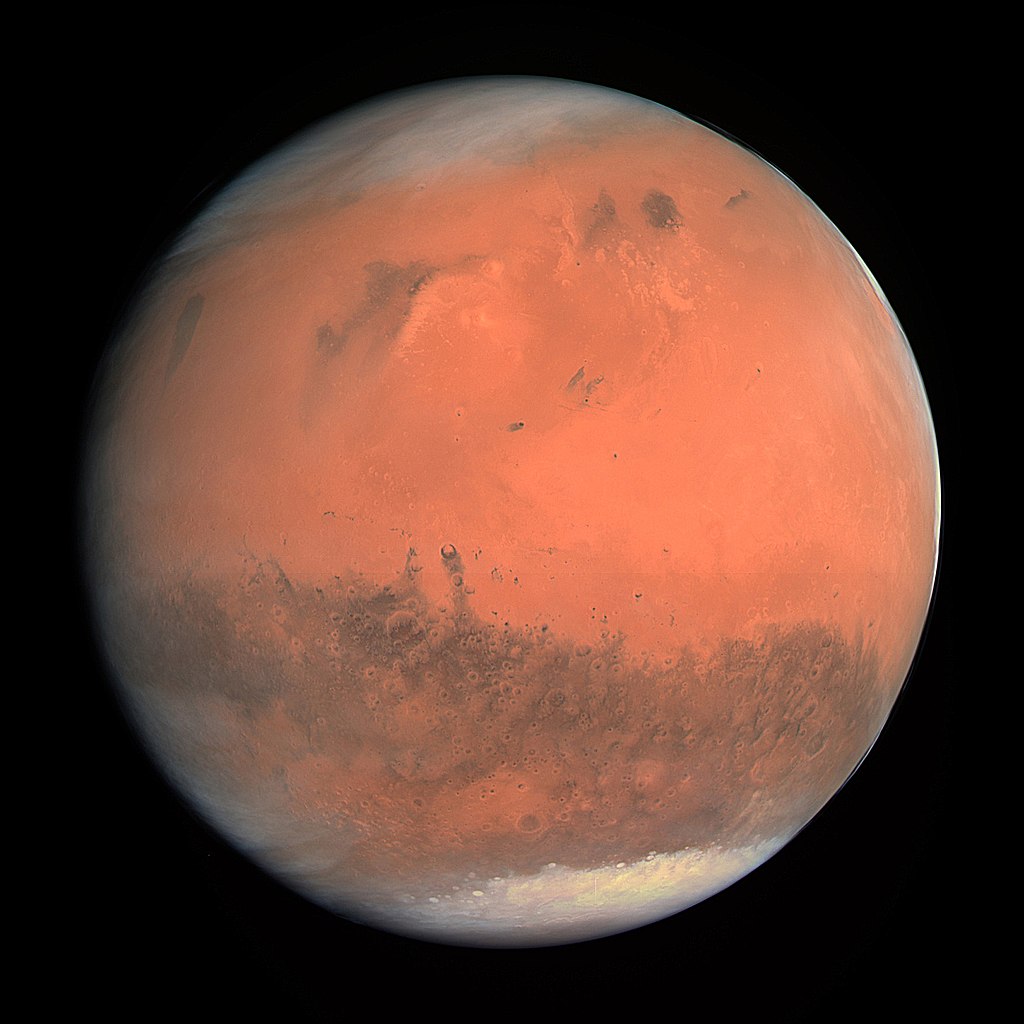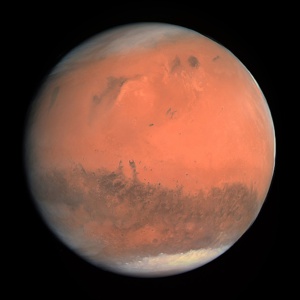A study published in the “Nature Geoscience” journal claimed that Mars once possessed salt lakes which experienced “wet and dry phases” much similar to the ones we have on Earth.
This findings is an indicator to the fact that the climate in Mars had “dried out” long time ago, which could mean “over 3 billion years ago”, as per researchers’ estimates. The lake in Gale Crater of Mars, a “95-mile-wide” rocky basin, under the watch of “NASA’s Curiosity” since 2012, could have dried out at the” global drying” out phenomenon faced by the red planet.
Many researchers, including the ones at “Texas A&M University in the U.S.” consider the Mars atmosphere might have turned “unsustainable” which in turn caused the water from the planet to evaporate while the pressure and the atmosphere thinned down.
Furthermore, the study also noted that the Gale Crater was created as a meteor hit Mars nearly “3.6 billion years ago”. The co-author of the study from the “Texas A&M University”, Marion Nachon said:
“Since then, its geological terrains have recorded the history of Mars, and studies have shown Gale Crater reveals signs that liquid water was present over its history, which is a key ingredient of microbial life as we know it”.
“It is difficult to say exactly how large these ponds were, but the lake in Gale Crater was present for long periods of time - from at least hundreds of years to perhaps tens of thousands of years”.
Researchers compared the Mars salt lakes with the ones found on Earth’s Altiplano region near the “Bolivia-Peru border”. Furthermore, Ms. Nachon also pointed out that Altiplano has an “arid” climate and the topography of a “high-altitude plateau” as a result, no rivers here “flow to the sea but lead to closed basins, similar to what used to happen at Gale Crater on Mars”.
“This hydrology”, says Nachon, “creates lakes with water levels heavily influenced by climate. During the arid periods Altiplano lakes become shallow due to evaporation, and some even dry up entirely”.
The Mars climate, thinks researchers, resembled similar pattern of “wetter and drier” spells. Furthermore, the study also enumerated the “types of chemical elements” found in the “liquid water” present at that time on the red planet’s surface. Additionally, the study also talks about the “environmental changes” that they “potential life forms” must have dealt with if they lived on the planet at that time.
References:
thehindu.com
This findings is an indicator to the fact that the climate in Mars had “dried out” long time ago, which could mean “over 3 billion years ago”, as per researchers’ estimates. The lake in Gale Crater of Mars, a “95-mile-wide” rocky basin, under the watch of “NASA’s Curiosity” since 2012, could have dried out at the” global drying” out phenomenon faced by the red planet.
Many researchers, including the ones at “Texas A&M University in the U.S.” consider the Mars atmosphere might have turned “unsustainable” which in turn caused the water from the planet to evaporate while the pressure and the atmosphere thinned down.
Furthermore, the study also noted that the Gale Crater was created as a meteor hit Mars nearly “3.6 billion years ago”. The co-author of the study from the “Texas A&M University”, Marion Nachon said:
“Since then, its geological terrains have recorded the history of Mars, and studies have shown Gale Crater reveals signs that liquid water was present over its history, which is a key ingredient of microbial life as we know it”.
“It is difficult to say exactly how large these ponds were, but the lake in Gale Crater was present for long periods of time - from at least hundreds of years to perhaps tens of thousands of years”.
Researchers compared the Mars salt lakes with the ones found on Earth’s Altiplano region near the “Bolivia-Peru border”. Furthermore, Ms. Nachon also pointed out that Altiplano has an “arid” climate and the topography of a “high-altitude plateau” as a result, no rivers here “flow to the sea but lead to closed basins, similar to what used to happen at Gale Crater on Mars”.
“This hydrology”, says Nachon, “creates lakes with water levels heavily influenced by climate. During the arid periods Altiplano lakes become shallow due to evaporation, and some even dry up entirely”.
The Mars climate, thinks researchers, resembled similar pattern of “wetter and drier” spells. Furthermore, the study also enumerated the “types of chemical elements” found in the “liquid water” present at that time on the red planet’s surface. Additionally, the study also talks about the “environmental changes” that they “potential life forms” must have dealt with if they lived on the planet at that time.
References:
thehindu.com






